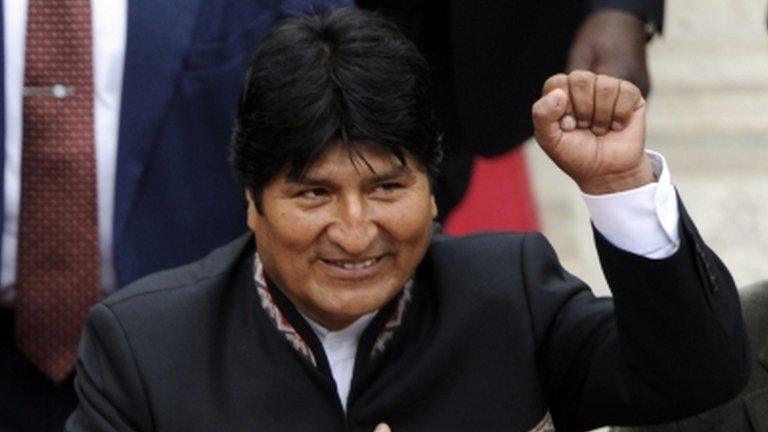Bolivian voters reject fourth term for Morales
- Published
Voters went to the polls to decide if Morales can stay in power for a fourth term
Bolivians have narrowly rejected changing the constitution so President Evo Morales can run for a fourth term.
About 51.5% voted against the move with almost all the votes counted, the electoral authority said.
Mr Morales, Bolivia's first head of state of indigenous origin, has said he will respect the referendum result.
The constitutional change would have allowed Mr Morales to run for re-election in 2019 and potentially remain in power until 2025.
Observers said the count, external has been slow but that there was no evidence of fraud.
Pollsters had suggested a victory for the "No" camp based on unofficial quick counts, prompting celebrations by "No" campaigners in various Bolivian cities.
Mr Morales is still a popular leader and the economy has grown steadily over the past decade.
But many, especially in the main cities, think Mr Morales should not be allowed to serve 19 consecutive years as president, analysts say.
Opposition leader Samuel Doria Medina urged Mr Morales to "recognise the results" and focus on solving Bolivia's problems in his remaining time in office instead of trying to run for another term.
An indigenous Aymara and former coca leaf producer, he took office in January 2006, and his current term ends in 2020.

Evo Morales in office
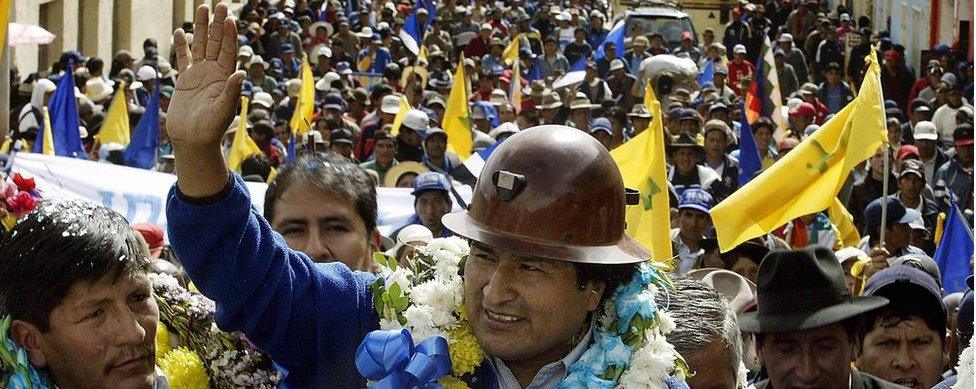
Evo Morales waves to supporters in Oruro in October 2005 during his presidential campaign
First elected president in 2005: Began by renationalising the country's oil and gas industries and boosting social spending. Won a referendum in August 2008 on whether he should stay in office, and then a few months later a referendum approved his plans for a new constitution
Re-elected in 2009: His second term followed a landslide win, and Mr Morales continued to pursue left-wing policies
Again re-elected in 2014: He was able to run again despite the 2009 constitution limiting presidents to two consecutive terms in office. The Constitutional Court ruled his first term should not count because it had not taken place under the new constitution. His current terms ends in 2020
Another run in 2019? A win in Sunday's referendum would let him stand again, and potentially serve until 2025

"With my record, I can leave happily and go home content. I would love to be a sports trainer," Mr Morales was earlier quoted as saying in an interview, external (in Spanish) with the Spanish newspaper El Pais.
However, he also accused right-wingers of waging a "dirty war" against him.
Observers say there is no clear successor to him and that the opposition lacks a single leader.
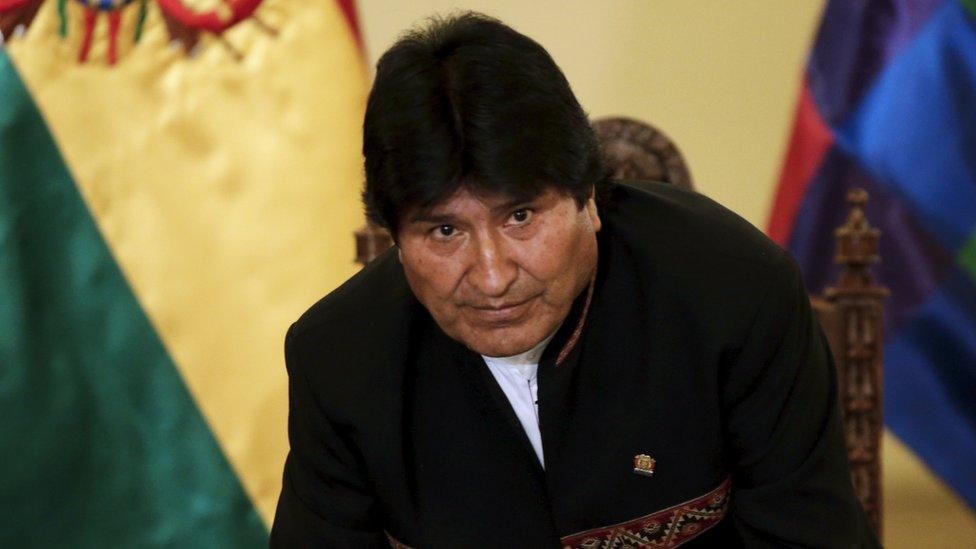
Mr Morales said that "life will go on" if he loses the referendum
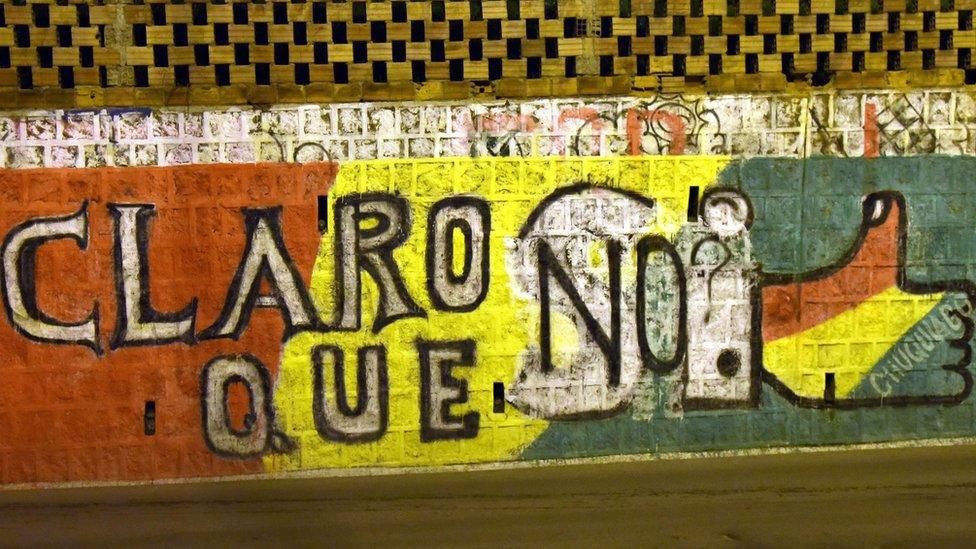
Graffiti reads "Of Course Not" in El Alto, Bolivia's second largest city, in opposition to Mr Morales's bid for a fourth term
Despite a drop in the international price of oil and natural gas, the Bolivian economy has performed well in the past 10 years, growing on average 5% a year.
The government's socialist policies have also been successful in reducing extreme poverty.
But recent allegations that Mr Morales used his influence to favour a Chinese construction firm in Bolivia have damaged his approval ratings.
A former girlfriend of Mr Morales, Gabriela Zapata, holds an important position in the company, CAMC, which has secured more than $500m (£350m) in contracts with the Bolivian government.
Mr Morales rejected the allegations and said he had nothing to hide. He ordered an investigation into how the contracts were awarded.
- Published18 November 2015
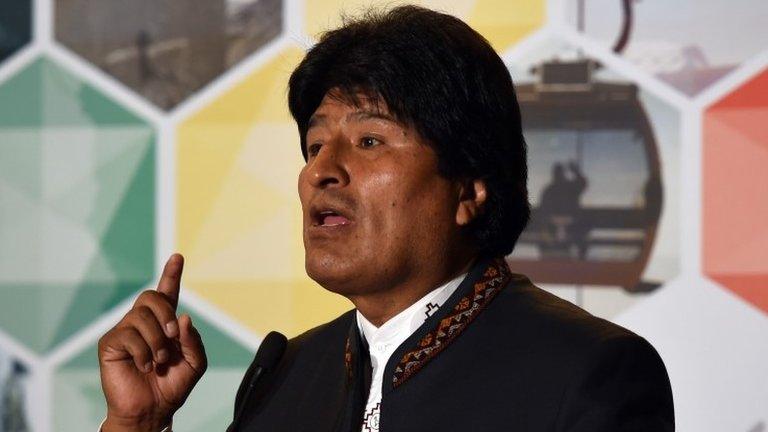
- Published20 October 2014
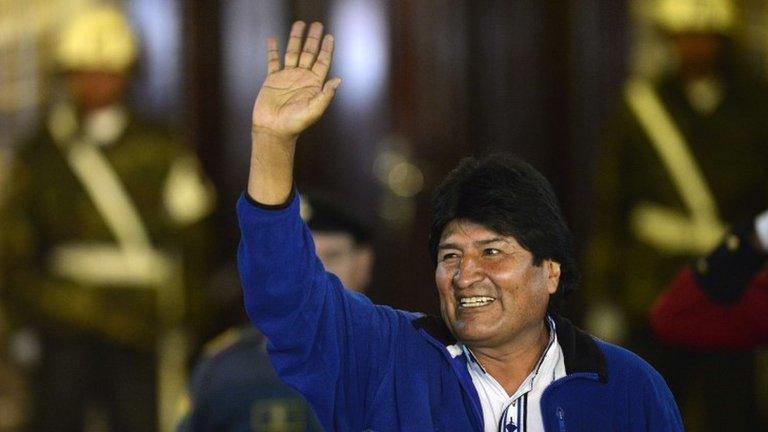
- Published14 October 2014
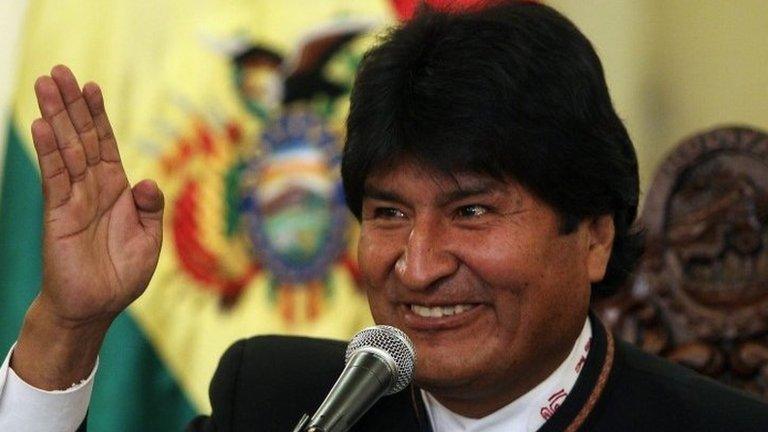
- Published30 April 2013
